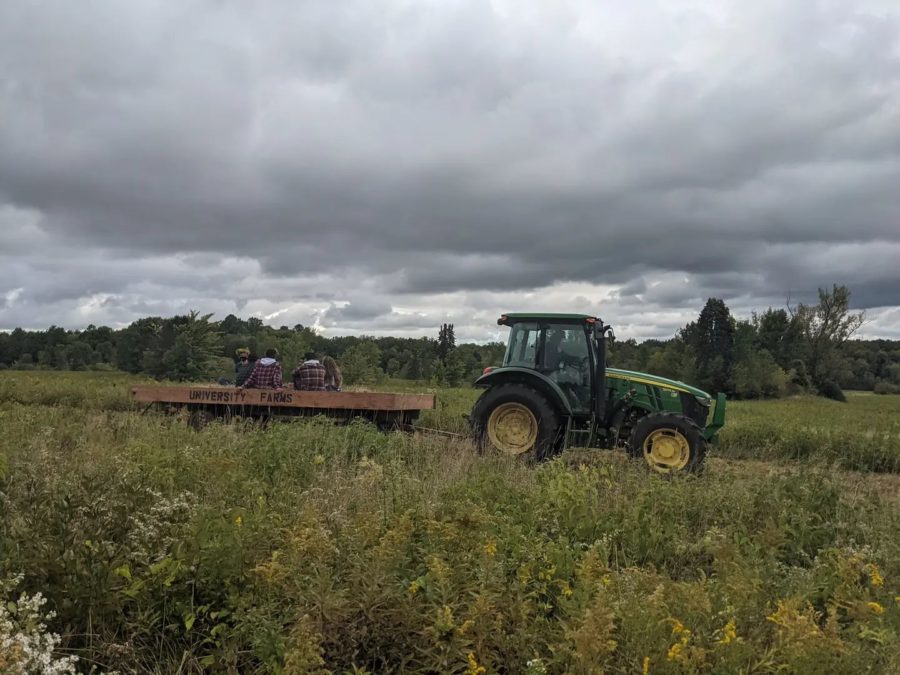CWRU rediscovers the Farm Harvest Festival
Courtesy of CWRU Farm Facebook
The SSC invites students to the University Farm to enjoy hayrides and other relaxing activities at the 11th annual Farm Harvest Festival
October 8, 2021
The Case Western Reserve University Farm spans a delightful 400-acre plot approximately 30 minutes away from campus. First acquired in 1919 after Andrew Squire left his own 277-acre farm to Western Reserve University, the University Farm has long been the site of rich education and extensive research. CWRU’s acquisition of additional property surrounding the original farm has since resulted in the University Farm’s expansion, making it a unique part of CWRU’s estate. And on Saturday, Sept. 25, it was the site of the 2021 Farm Harvest Festival (FHF).
The first wave of Student Sustainability Council members arrived in the morning to prepare the farm for the day, setting up the physical spaces and gathering supplies such as wildflowers for flower crown making. Other volunteers arrived later in the day to run the festival activities and serve food, with helpers representing a total of more than 10 different student organizations.
The FHF allowed students to relax, enjoy free food and partake in fun activities. To reduce the environmental impact of the event, all dining utensils were compostable and collected for appropriate disposal rather than being placed in the trash. Dining options also included several plant-based dishes, such as vegetarian chili, as well as vegan ice cream from Mitchell’s, not only making the event inclusive to vegetarian and vegan attendees but also more environmentally conscious by offering less carbon-intensive food choices.
Rain may have disrupted the festival at times, but students continued to have fun. Under the protection of a tent, students could paint rocks while enjoying live entertainment from groups like the CWRU Juggling Club and Case in Point.
Beyond the tent, students had many activities to choose from. A volleyball net and petting zoo provided recreational activities nearby, with the petting zoo featuring animals such as a rabbit, a donkey and several chickens. A firepit with a s’mores station supplied students with additional snacks to enjoy throughout the event.
Further from the tent, more activities such as lip balm making and herb potting provided giveaway opportunities for students, while flower crown making made for a fun crafts activity. Students could also go for hayrides and look at research amphibians.
While the event was able to return after being canceled last year, COVID-19 remained a visible part of the festival. The mostly outdoor nature of the event helped reduce the risk of spread, but masking requirements and social distancing signs were in place to help keep attendees safe.
COVID-19 may have changed the FHF in many ways, but the event’s return still allowed for a longstanding CWRU tradition to come back to campus. The first FHF was held in 2010 and now, eleven years later, the FHF remains the perfect opportunity for students to spend time outdoors and connect with university sustainability initiatives, even after a year away.



